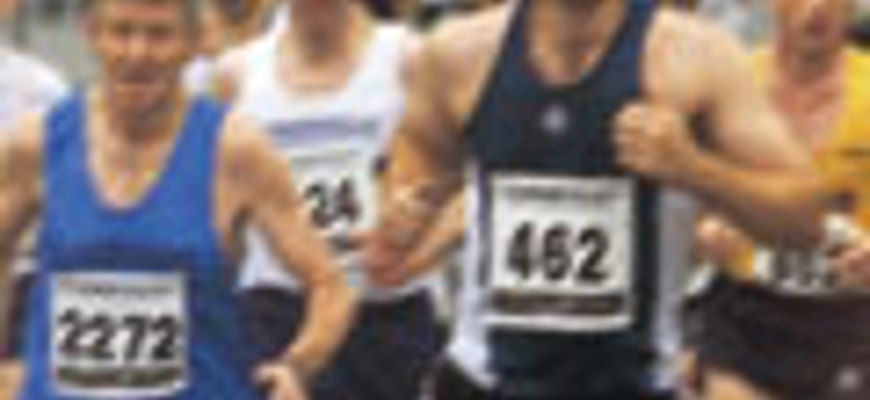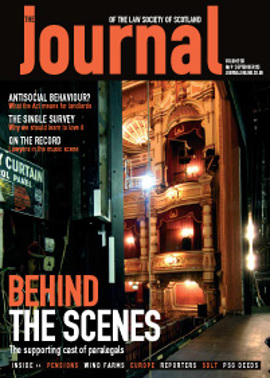Out of bounds

The case of Wiles v Bothwell Castle Golf Club [2005] Scot CS CSOH 108 concerns the contentious issue of reviewing a decision made by a private body, in this case a golf club. Following a fire which destroyed the golf clubhouse, members were given three options to replace the building. During an EGM the majority of members voted to relocate the building, within the club’s grounds. A planning application was made for the proposed new building. Two members of the club, the petitioners, were given neighbour notification of the application. They objected to these plans because of various issues, in particular the destruction of woodland.
The club’s committee invited the petitioners to a meeting, at which their club membership was suspended for acting “discourteously” and “endangering the interests of the club”, contrary, the committee said, to the club’s constitution. At a later meeting of the committee, the petitioners were expelled. The petitioners raised an action for judicial review seeking reduction of the decision of the club on the grounds that the decision was procedurally unfair and wholly irrational, that irrelevant matters had been taken into consideration and that expulsion was disproportionate.
Slow to intervene
The case of St Johnstone Football Club Ltd v Scottish Football Association Ltd 1965 SLT 171 set the tone on judicial interference in the decisions of private sporting clubs. Lord Kilbrandon opined that mere irregularity in procedure was not enough; it must be so fundamental that it goes beyond a mere matter of procedure and is something so prejudicial to a fair and impartial investigation of the question to be decided as to amount to a denial of natural justice. Examples would include conviction for an offence taking place without an accusation being made, or without allowing the person accused a reasonable opportunity to defend himself against the allegations. Since 1965 and the decision in St Johnstone, courts have been slow to intervene in disputes concerning private sporting bodies.
Proper exercise
In Wiles, Lord Glennie reduced the decision of the committee to terminate the petitioners’ membership, holding that the petitioners had behaved properly and within their rights under the planning system. Although recognising the inherent conflict between the petitioners’ interests as private individuals and those of the club, Lord Glennie found nothing vindictive or irrational about the petitioners’ opposition to the club’s proposals; it was not done to spite the club, but rather their actions were to exercise and protect their own individual rights and interests. Furthermore, Lord Glennie found it clearly established that where a member wishes to vindicate his rights in relation to a private club, judicial review is appropriate even where there is a contractual nature to the foundation of the dispute.
Sport and the law have previously been said to be uneasy bedfellows. However, Wiles serves as a clear warning: the courts are perfectly content to sit in judgment of disputes concerning the running of private sporting clubs and the interests of members. Lord Glennie stated: “Whatever may have been the position in the past, I consider that it is wrong today to draw a clear line between, for example, on the one hand trade associations and, on the other, social or sporting clubs; and say that in the former case the courts will be ready to intervene on procedural matters whereas in the latter they will not.”
Valuable interest
The growth of commercial interest in professional sport over the past two decades or so has given rise to considerable regulation, legal challenges and even tailored dispute resolution forums such as the Court of Arbitration for Sport. Similarities may now be witnessed in amateur sport, even in the absence of considerable commercial interests, with membership of private sporting clubs now more serious and of greater influence on everyday life. As Lord Glennie notes: “Many members will have shaped their social, sporting and (possibly) business lives around membership. That is not lightly to be taken away.” Sports clubs must be cautious to act within the powers of their constitution or rules. They must also seek to adhere to accepted standards of natural justice and due process. This will inevitably help avoid the risk of court challenge by dissatisfied members.
The message is clear. The organisation and administration of all sport, whether public or private, professional or amateur, must be robust and professional. Constitutions, committee powers and procedures and the rights of sportspeople and members must be clearly set out and fairly applied, in every case, or judicial intervention will further increase.
Bruce A Caldow and Elisa Walker, Harper Macleod LLP
In this issue
- Moving in society
- Pots and kettles
- Unseen force
- Licence to let?
- The cost of a puff
- Select band
- Cross-border disputes: a practical way forward?
- No hiding place
- Safe as houses?
- Close connection
- Another string to the bow
- The ultimate sanction?
- A right and its exercise
- In good company
- Out of bounds
- Scottish Solicitors Discipline Tribunal
- Website reviews
- Book reviews
- The single survey: why it should be supported
- Drafting deeds of conditions - a real burden?
- SDLT online service






